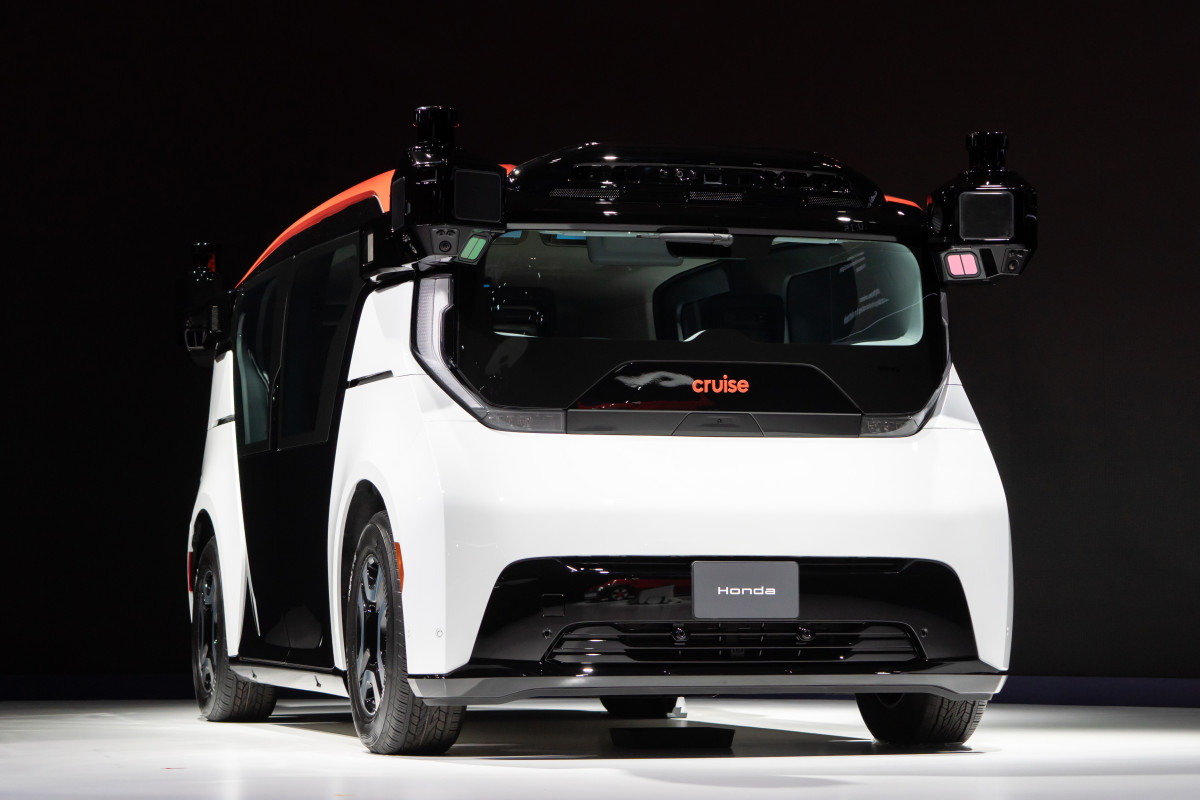
Figureheads like Elon Musk wish for a future where roads are chock-full of autonomous vehicles and robotaxis driving around, but present-day realities prove that the future is a little bit far from reach.
Though Tesla has delayed its August 8 robotaxi event to sometime in
October and reports have questioned the true capabilities of the company's self-driving software, an actual glimpse into a future without human drivers is currently being offered by companies like Google's Waymo (GOOGL) and General Motors' Cruise (GM) .
The latter of the pair's startups — Cruise is making a comeback following an eventful period and is making some changes that might delay a different kind of futuristic vehicle from hitting the streets.

No More Origin
According to a letter penned by General Motors CEO Mary Barra to shareholders with its second quarter 2024 financial results, the Detroit automaker is stepping away from developing the Cruise Origin autonomous vehicle.
Per the letter, the company is pursuing more cost-effective solutions based on vehicles that require as few regulatory headaches as possible.
“The Cruise team will also simplify their path to scale by focusing their next autonomous vehicle on the next-generation Chevrolet Bolt, instead of the Origin,” Barra said in the company’s letter.
“This addresses the regulatory uncertainty we faced with the Origin because of its unique design. In addition, per-unit costs will be much lower, which will help Cruise optimize its resources.”
Related: With Joe out, where does Kamala stand on EVs?
Barra calling the Origin "unique" is an understatement. First shown to the public in 2020, the Origin is a bus-shaped vehicle co-developed with Honda. The vision for the vehicle was to offer a properly futuristic robotaxi experience.
Unlike its current fleet of Chevrolet Bolt electric vehicles, the Origin was as close to the Jetsons as one would get on-road. The car had no steering wheel or pedals, and passengers sat face-to-face on opposite ends of the vehicle.
With an anticipated stream of Chevrolet Bolt EUVs starting production next year, GM is expected to cut costs and alleviate regulatory headaches amidst a very shaky year for both the company and robotaxis in general.
More Automotive:
- Hyundai pressured dealers to play dirty sales trick, lawsuit alleges
- Ford CEO sends a stern warning for American car buyers
- Analysts have a bleak outlook for car dealers after CDK cyberattack
Cruise is still reeling from having its permits revoked in California following a crash in which one of its robot taxis hit a pedestrian in San Francisco in October 2023.
Since the incident, the company has voluntarily removed its entire fleet from the streets, and its CEO, Kyle Vogt, has resigned. General Motors has since assumed more control over the start-up, and Marc Whitten has been hired as Vogt's successor.
According to The New York Times, Cruise restarted testing its driverless vehicles in Dallas, Houston, and Phoenix with living, breathing humans ready to take the wheel whenever necessary.
The people v. the robots
Recently, autonomous vehicles and robotaxis have been under the microscope of both the general public as well as regulatory bodies.
An act of destructive vandalism claimed a vehicle operated by Cruise's rival, Waymo, during the Lunar New Year festivities in San Francisco in February 2024. The incident occurred as tension between Frisco residents and the robotaxi companies has escalated in recent years. after a series of accidents during beta tests placed citizens in potential danger.
In a report released on May 13, the National Highway Traffic Safety Administration (NHTSA) said it is investigating Waymo's autonomous driving systems following reports that the cars caused collisions or violated traffic laws.
Related: Veteran fund manager picks favorite stocks for 2024







